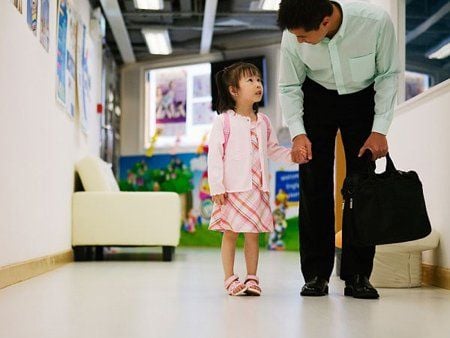This is an automatically translated article.
Language development in children aged 5 to 8, during the first school years shows that children learn more and longer words. Children are more skilled at putting words together in new ways. At this age, children also become more familiar with how language sounds, and how sounds combine to form words. In this article we will provide useful information to help you better understand language problem development in children aged 5 to 8.1. How do children develop language?
Each child will have a different way of learning to speak, express speech and speak speed, so parents should not be surprised if children do not use words or express words like other peers. However, children this age still have common features in typical speech and language development. As in 5-year-olds, the following should be developed:The child can pronounce all sounds of the voice (although sounds like l, s, r, v, z, ch, sh, and th th). can still be difficult). In some localities, because the native population has many lisp, non-standard pronunciation, children may be mispronounced such sounds as l and n, s and x,... These sounds children can correct in the learning process and trained by parents at home. Children can understand and answer other people's questions about issues around life such as: "Where did you go to play today, who did you go with" or simply the names of the dishes the children used in their meals. previous meal. Children have been able to remember and name basic numbers such as from 1 to 10 or more, or the letters a, b, c, ... in the alphabet. Children can already use more words, more sentences. Some children with good memories can even retell short stories that happened to themselves or to those around them. Children also have the thinking and ability to talk for a long time with adults, can ask stories and tell stories to their loved ones.

Mỗi trẻ sẽ có cách học nói, biểu thị lời nói và tốc độ nói khác nhau nên các phụ huynh cũng không cần ngạc nhiên nếu như trẻ không sử dụng từ ngữ hoặc diễn đạt ngôn giống những bạn đồng trang lứa khác
By the end of 1st grade, children are able to:
Understand more easily the stories adults say Children can answer more complex questions like why did this or did they go What school do they go to,... When telling stories, children have a logical sequence of events, and have more diverse and complete sentences. Children can remember and follow directions with two or three steps. By the end of 2nd grade, children will have more development such as:
Be able to interpret more difficult words and ideas. Uses words to inform, persuade, and interact with others Children can use more complex sentences Children can maintain communication, talk about different topics with adults. Children can give, remember and follow directions in three or four steps. However, there will be children who have difficulty communicating ideas or have other language difficulties that may affect their ability to learn more important new skills, such as reading and writing
2. What to do when children mispronounce?
Some children still have small problems with pronunciation at this age of 5 to 8 years old, parents can let children combine phrases such as mangosteen, durian,... Some children still have problems with pronunciation. difficult for some difficult and confusing sounds like L and N, S and X, R and D or G,...but parents shouldn't worry. "Some of these sounds may not be pronunciation errors but simply differences in pronunciation," says Diane Paul, director of clinical affairs in speech-language pathology for the American Speech-Language Association. accent or dialect". So it takes time for the child to correct, parents need to correct the child, let the child say all his words and then correct the word or the whole sentence. Gradually, children will have their own changing perceptions. This is a minor pronunciation problem and may not be a cause for concern, just need to be patiently, patiently and patiently corrected by parents. Should not bully, create a feeling of fear for the child when talking, this will limit the child's ability to talk.If the child is still stuttering by the age of 5, parents should make an appointment with a speech-language pathologist instead of continuing to wait to see if the child is getting better. The specialist will take a detailed history, examine the child's oral structure, and also examine the voice and language, the children communicate and talk to find out the problem of the child. Often these problems can be resolved in the short term.
Besides, parents should also make sure that the child can breathe comfortably and treat any allergy, cold or sinus problems so that the child can breathe through the nose or lips together in an open breathing position. mouth and make the tongue lie flat and protrude. Frequent stuffy nose is also the cause of the child's lisp, if it is an upper respiratory disease, the child should be treated early so as not to affect the child's health.

Ngạt mũi thường xuyên cũng là nguyên nhân khiến trẻ bị ngọng
3. Children with stuttering
In fact, most people from adults and children stutter from time to time, usually when they are nervous or in a hurry. There are many expressions of stuttering such as repeating part of a word like “B-b-b-what are you doing” or lengthening sounds. Sometimes children are interrupted by sentences and have difficulty completing a sentence such as: “I want to um um um go out”. Most children stutter before the age of 5, but some persist for undetermined reasons. Sometimes this stuttering gets worse over time or it can change to other forms as well. At this time, parents should make an appointment with a speech-language pathologist if their child often suffers from this phenomenon. Specialists will evaluate and determine if your child's stuttering continues to occur and can work with the child to provide treatment to help reduce the severity of the stutter. A speech-language pathologist can also help if a parent feels a stretch in the child's jaw or cheek or when communicating the child often looks away, clenched fists because of stress, and blinks repeatedly. , grimacing or stomping in frustration to try to speak. Parents can do nothing but "persevere". Do not be grumpy or pushy when the child has not finished his sentence, parents should calm down and remind the child to relax or slow down, absolutely do not put more pressure when the child talks. Parents should also pay attention to their own attitude when communicating with children, should not look away while the child is trying to talk, should pay attention to listen to the child, calmly wait for the child to finish his sentence. me. If not, it can really make the child feel rushed, even more embarrassed, to not want to socialize anymore.
Hầu hết trẻ em đều nói lắp trước 5 tuổi nhưng một số trẻ vẫn kéo dài tình trạng này với lý do không xác định được
4. Speech arrest in children
Childhood speech cessation (CAS) is a disorder of the nervous system that affects a child's ability to speak, sounds, syllables, and words. With aphasia, the brain has trouble telling a child's lips, jaw, and tongue what to do to produce a voice. When a child has aphasia, although he or she knows what the people around him are saying, he or she may not be able to produce precise and consistent sounds.If your child has aphasia, the child may have one of the following symptoms:
The child makes an inconsistent pronunciation that is not because he or she does not know how to say the sounds The child can understand what people say more than the child can speak. Children have difficulty imitating speech, but their mimicry is more pronounced than those of children who speak on their own. Children find it difficult to make sounds or coordinate their lips, tongue, and jaw to speak. Children have more difficulty saying words and phrases than single words. Children find it more difficult to speak than when they are nervous, have difficulty understanding, or make no sense if they are showing signs of a speech disorder in their children, it is important to make an appointment with a speech therapist. As soon as possible, most children with aphasia need professional therapy to be able to speak more clearly.

Chứng ngưng nói ở trẻ em (CAS) là một chứng rối loạn của hệ thần kinh khiến ảnh hưởng đến khả năng nói, âm thanh, âm tiết và từ của trẻ
5. When does your child need help?
If parents feel concerned about their child's language development, they should call the doctor for advice or go directly to the clinic so that the doctor can observe the child's condition. Especially when the child has the following symptoms:The child rarely asks questions or often lets adults ask questions in conversations, says only short phrases and sentences, or rarely adds information Additional news and stories. Children can't find the right words to use to express themselves, they often use words with general meanings without specifying the exact name of the thing such as: That, that, .. Children use long intervals between words and sentences when communicating. Children drool when pronouncing words incorrectly or have difficulty eating or swallowing (if parents feel that their child has this phenomenon, they should notify the doctor to understand the child's condition) The child has difficulty pronouncing many sounds or Difficulty expressing yourself. This can lead to difficulty in reading, writing and spelling if the issue is not addressed soon. In addition, if parents have any concerns that their child may have speech or language delays due to a hearing loss, contact your doctor and request a hearing evaluation from a specialist.
Language development during the first school years shows that children learn more words as well as learn longer words. Children are also more skilled at putting together learned words in ways they were completely unaware of before. In addition, at this age, children also become more familiar with pronunciation and how to combine sounds to form a complete word.
If the child has language problems, parents can take the child to reputable medical facilities for examination and treatment.

Nếu trẻ có các vấn đề về ngôn ngữ, cha mẹ có thể đưa trẻ đến các cơ sở y tế uy tín để thăm khám và điều trị
A system of modern and advanced medical equipment, possessing many of the best machines in the world, helping to detect many difficult and dangerous diseases in a short time, supporting the diagnosis and treatment of doctors the most effective. The hospital space is designed according to 5-star hotel standards, giving patients comfort, friendliness and peace of mind.
If you have a need for medical examination at Vimec Health System nationwide, please make an appointment on the website to be served.
Please dial HOTLINE for more information or register for an appointment HERE. Download MyVinmec app to make appointments faster and to manage your bookings easily.
References: babycenter.com, raisingchildren.net.au












